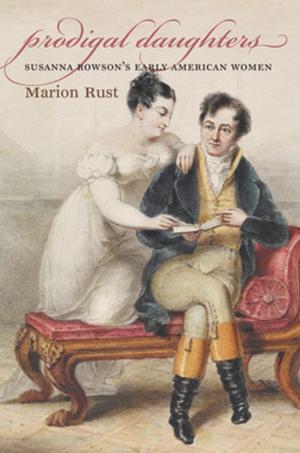Adapting to a New World
English Society in the Seventeenth-Century Chesapeake
Nonfiction, History, Americas, United States, Colonial Period (1600-1775)| Author: | James Horn | ISBN: | 9780807838310 |
| Publisher: | Omohundro Institute and University of North Carolina Press | Publication: | December 1, 2012 |
| Imprint: | Omohundro Institute and University of North Carolina Press | Language: | English |
| Author: | James Horn |
| ISBN: | 9780807838310 |
| Publisher: | Omohundro Institute and University of North Carolina Press |
| Publication: | December 1, 2012 |
| Imprint: | Omohundro Institute and University of North Carolina Press |
| Language: | English |
Often compared unfavorably with colonial New England, the early Chesapeake has been portrayed as irreligious, unstable, and violent. In this important new study, James Horn challenges this conventional view and looks across the Atlantic to assess the enduring influence of English attitudes, values, and behavior on the social and cultural evolution of the early Chesapeake. Using detailed local and regional studies to compare everyday life in English provincial society and the emergent societies of the Chesapeake Bay, Horn provides a richly textured picture of the immigrants' Old World backgrounds and their adjustment to life in America. Until the end of the seventeenth century, most settlers in Virginia and Maryland were born and raised in England, a factor of enormous consequence for social development in the two colonies. By stressing the vital social and cultural connections between England and the Chesapeake during this period, Horn places the development of early America in the context of a vibrant Anglophone transatlantic world and suggests a fundamental reinterpretation of New World society.
Often compared unfavorably with colonial New England, the early Chesapeake has been portrayed as irreligious, unstable, and violent. In this important new study, James Horn challenges this conventional view and looks across the Atlantic to assess the enduring influence of English attitudes, values, and behavior on the social and cultural evolution of the early Chesapeake. Using detailed local and regional studies to compare everyday life in English provincial society and the emergent societies of the Chesapeake Bay, Horn provides a richly textured picture of the immigrants' Old World backgrounds and their adjustment to life in America. Until the end of the seventeenth century, most settlers in Virginia and Maryland were born and raised in England, a factor of enormous consequence for social development in the two colonies. By stressing the vital social and cultural connections between England and the Chesapeake during this period, Horn places the development of early America in the context of a vibrant Anglophone transatlantic world and suggests a fundamental reinterpretation of New World society.















